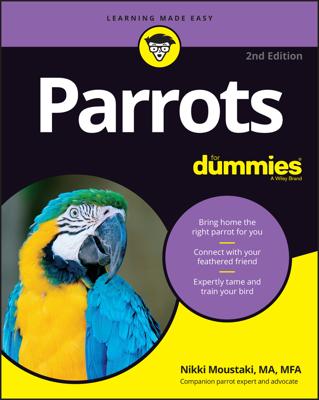Feather plucking is a complex syndrome. It can indicate either a physical or psychological problem with your cockatiel. You need to observe your bird closely, commit to medical care, and then be creative in solving this issue. This syndrome has many looks. Feather mutilation may range from a bare spot under the wings to a bald chest. It may indicate a deadly disease or could just mean that your cockatiels feel overcrowded in their current accommodations.
Feather plucking is a difficult syndrome for cockatiel owners to face. Much of the beauty and delight of cockatiels is found in their feathers. Underneath it all, a cockatiel looks like a plucked chicken, albeit a plucked chicken with personality! It's worth looking into the reasons for your cockatiel's condition, because feather plucking can be alleviated, or at least controlled, in many cases.
Causes of feather picking
Feather plucking can be caused by disease or allergy. It can be a reaction to toxins or the result of a skin infection. Parasites, as well as dietary deficiencies, contribute to feather plucking. Some feather plucking is a behavioral response alone, with no medical cause. Because feather plucking has such a range of causes, finding the cause takes some investigation on your part.
Start this investigation with a medical exam by an avian veterinarian. Your vet will want to rule out hypothyroidism, infection, or disease as a cause of the feather picking. Cockatiels commonly have itchy skin and pick only under their wings when they have an infection of the parasite Giardia. You or your veterinarian won't know this without lab tests.
Probably one of the worst causes of feather picking is Psittacine Beak and Feather Disease (PBFD). This disease usually affects young birds under 3 years old and causes feathers to grow in abnormally. It's an infectious disease and not curable.
Don't be concerned if your avian veterinarian can't find the cause of your cockatiel's feather picking right away. Work as a team to resolve the problem, as this is such a complex syndrome. Carefully consider the symptoms your bird has and follow your veterinarian's directions regarding ways to rule out different physical causes.
Your cockatiel may be plucking due to sexual frustration. Does your cockatiel pluck feathers at certain times of the year? Is it during the spring and the fall? If this turns out to be the cause, control sexual stimulation or work with your veterinarian to administer hormone shots.
Though it's possible that sexual frustration may be a reason for feather plucking in parrots, breeding your cockatiel isn't the best solution to this problem. If people breed feather-plucking cockatiels, the result in future generations of cockatiels is more feather-plucking cockatiels. Breed only the most outstanding companion cockatiels so that you produce more healthy cockatiels who are well adjusted to life as a human's companion.
Observations about your cockatiel
Your observations about your cockatiel are key to determining his health status. Important observations include details about the age and history of your cockatiel. Where did you get him, and has he lived with other birds and with other species of birds? How long have you observed feather-plucking behavior, and when did it start? What does your cockatiel eat? Do you see your cockatiel picking? Is he pulling out feathers, mutilating feathers, or digging sores on his body? Is this a seasonal pattern? Does your cockatiel seem to have itchy skin? How does he react when you see him plucking feathers? Where is your cockatiel plucking? A cockatiel can reach his chest or back. If he's missing feathers from his head, then someone else in the flock is doing the plucking.
Do you or someone in the family smoke or use sprays or chemicals in the home? Have you recently installed new carpeting or started using new scented candles or an air freshener? Is your cockatiel getting a good diet? Does he eat a formulated diet supplemented with fresh foods or a homemade diet and vitamins? Do you feed something other than seed? Does he have access to cuttlebone? Do you have full-spectrum lights in your cockatiel's environment?
Distracting a feather plucker
Whether your cockatiel is plucking feathers for medical or behavioral reasons, you can make several changes that may help your cockatiel feel better about himself and his condition. Bathe your cockatiel daily while his condition persists. Doing so will minimize bacteria and molds as well as irritants to which he is allergic. If your cockatiel is suffering from separation anxiety, his preening following a bath gives him something to do.
Don't give your cockatiel any attention for plucking. Don't admonish him to stop or say no or run over to distract him. Those responses aren't helpful, and your attention may be exactly what he craves. Give your plucking cockatiel attention for playing quietly or for resting peacefully. Tell him how beautiful he is in those moments, as that is behavior you want to encourage.
Offer a plucking cockatiel other outlets for constructive preening. Give him toys that allow him to run his beak over strands of fiber just as he would run his beak through feathers to preen. He can learn to compulsively destroy a toy instead of his own feathers. Let your cockatiel play with peacock feathers or perforate your junk mail. A small whisk-broom or piece of all-cotton rope offer preening opportunities. Change your bird's toys, even if you simply rotate the same toys every other week. If your cockatiel's plucking stems from boredom or if you need to redirect his behavior, rotating the toys is helpful. If your cockatiel is stressed and fearful, however, this tactic probably isn't a good idea.

